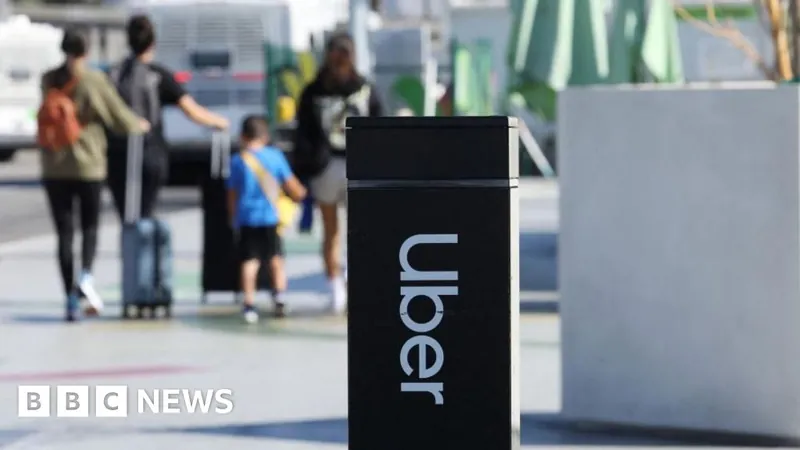
Uber in Hot Water: FTC Accuses Ride-Sharing Giant of Deceptive Subscription Practices!
2025-04-22
Author: Wai
The FTC Takes a Stand Against Uber
In a shocking move, the U.S. Federal Trade Commission (FTC) has launched a lawsuit against Uber, claiming the ride-hailing and delivery titan has been indulging in dubious billing and cancellation tactics.
Deceptive Practices Under Scrutiny
The FTC has accused Uber of charging customers for its Uber One subscription service without explicit consent and creating a maze of obstacles for anyone trying to cancel. "The Trump-Vance FTC is fighting back on behalf of the American people," stated FTC Chairman Andrew Ferguson, a Trump appointee.
Uber Responds: 'Disappointed' but Firm in their Defense
An Uber spokesperson expressed disappointment at the lawsuit, firmly denying all allegations. Launched in 2021, Uber One promises enticing perks, such as fee-free delivery and discounts on select rides and orders, available for $9.99 monthly or $96 annually.
A Complicated Cancellation Process?
The FTC's complaint suggests that consumers face an uphill battle when trying to suspend their subscriptions, alleging it can require navigating a daunting 23 screens and up to 32 actions. However, Uber's spokesperson, Ryan Thornton, countered that cancellations can now be completed in-app in under 20 seconds.
Changes in Cancellation Policy
In a shift from its previous policy, where cancellations had to occur within 48 hours of the next billing cycle, Uber claims that customers can now cancel their Uber One subscriptions at any time.
Consent Controversy: Were Customers Signed Up Without Knowledge?
The complaint also alleges that many users found themselves enrolled in Uber One without any consent, highlighting a particular customer who was charged despite lacking an Uber account. Uber firmly disputes this, asserting that it does not enroll or bill consumers without their permission.
A Historic Lawsuit Against a Tech Giant
This lawsuit marks a significant moment, being the FTC's inaugural legal action against a prominent U.S. tech company since Trump's second term began in January. Meanwhile, the ongoing case against Meta, formerly Facebook, highlights accusations of monopoly practices through the acquisition of Instagram and WhatsApp—both deals that the FTC had previously vetted.
The Battle Continues
As the FTC and Uber wrestle over these serious allegations, the implications for consumers and the tech industry at large are monumental. With debates over consent and user rights taking center stage, we await further developments in this unfolding drama.

 Brasil (PT)
Brasil (PT)
 Canada (EN)
Canada (EN)
 Chile (ES)
Chile (ES)
 Česko (CS)
Česko (CS)
 대한민국 (KO)
대한민국 (KO)
 España (ES)
España (ES)
 France (FR)
France (FR)
 Hong Kong (EN)
Hong Kong (EN)
 Italia (IT)
Italia (IT)
 日本 (JA)
日本 (JA)
 Magyarország (HU)
Magyarország (HU)
 Norge (NO)
Norge (NO)
 Polska (PL)
Polska (PL)
 Schweiz (DE)
Schweiz (DE)
 Singapore (EN)
Singapore (EN)
 Sverige (SV)
Sverige (SV)
 Suomi (FI)
Suomi (FI)
 Türkiye (TR)
Türkiye (TR)
 الإمارات العربية المتحدة (AR)
الإمارات العربية المتحدة (AR)